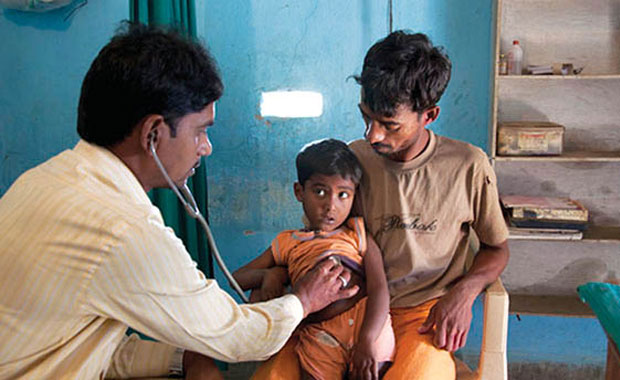Deadly ailments—Are the treatments safe?
Childhood diarrhoea and pneumonia—two leading killers of young children worldwide lack proper treatment in rural India.
Few health care providers in rural India know the correct treatments for childhood diarrhea and pneumonia—two leading killers of young children worldwide. But even when they do, they rarely prescribe them properly, according to a new Duke University study. Medical practitioners typically fail to prescribe lifesaving treatments such as oral rehydration salts (ORS). Instead, they typically prescribe unnecessary antibiotics or other potentially harmful drugs, said Mr Manoj Mohanan, a professor in Duke’s Sanford School of Public Policy, and lead author of the study. Diarrhea and pneumonia accounted for 24 percent of deaths among children 1 to 4 years old, totaling approximately 2 million deaths worldwide in 2011. Bihar, India—where the study was conducted—has an infant mortality rate of 55 per 1000 live births, the highest in the country.
“The Know-Do Gap in Quality of Health Care for Childhood Diarrhea and Pneumonia in Rural India” was published online on February 16, 2015, by JAMA Pediatrics. “We know from previous studies that providers in rural settings have little medical training and their knowledge of how to treat these two common and deadly ailments is low,” Mr Mohanan said. “Eighty percent in our study had no medical degree. But much of India’s rural population receives care from such untrained providers, and very few studies have been able to rigorously measure the gap between what providers know and what they do in practice,” he added.
The study involved 340 health care providers. Researchers conducted “vignette” interviews with providers to assess how they would diagnose and treat a hypothetical case. Later, the standardized patients—individuals who portrayed patients presenting the same symptoms as in the interviews made unannounced visits. This strategy enabled researchers to measure the gap between what providers know and what they actually do—the “know-do” gap. Providers exhibited low levels of knowledge about both diarrhea and pneumonia during the interviews and performed even worse in practice. For example, for diarrhea, 72 percent of providers reported they would prescribe oral rehydration salts—a life-saving, low-cost and readily available intervention but it was only 17 percent that actually did so. Those who did prescribe ORS also added other unnecessary or harmful drugs.











Comments.